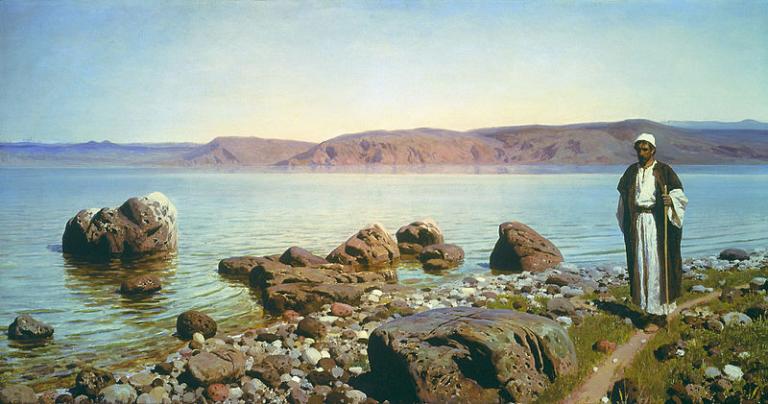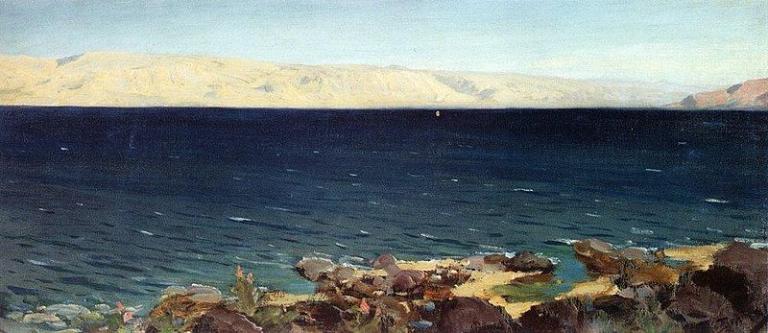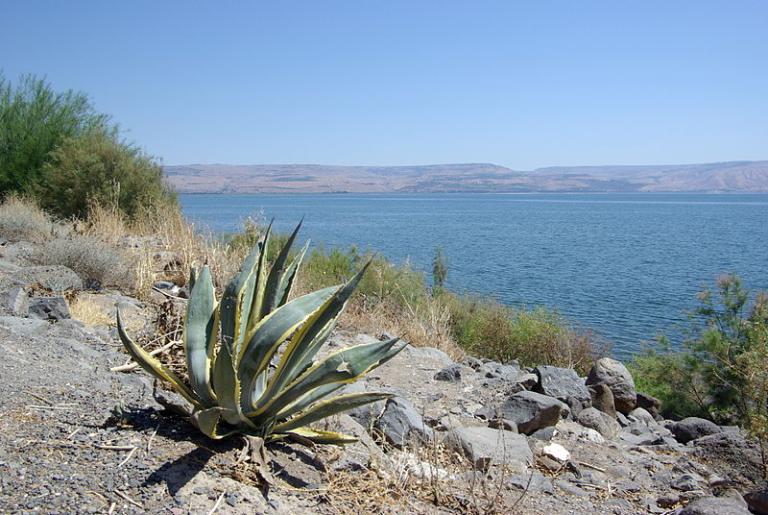
1.
It seems fairly obvious that Peter, though a fisherman by trade and a man who spent much of his working life out in a boat on the lake, couldn’t swim.
2.
The BYU students who study in Israel have long had a traditional song that they sing when they’re in the Galilee: “I swam today where Jesus walked.”
3.
It’s striking that even Jesus sometimes needed a bit of time alone, to pray and to recharge his batteries. If he did, we probably do, as well.

(Another of the Sea of Galilee’s several names is “Gennesaret.”)
People gathered about Jesus in crowds, seeking healing for themselves and their loved ones from tangible, physical ailments.
Nothing wrong with that.
Particularly in an era and in a distant rural place where medicine as we know it, even of the most rudimentary kind, simply didn’t exist. You could die, or be permanently incapacitated, from minor things that we can cure today with a pill or two.
But we should be crowding around Jesus today, craving relief from our spiritual illnesses.
Too few of us do. And too few of us do so consistently.

Jesus’ famous “Bread of Life” sermon, given in the synagogue at Capernaum, is recorded only in the gospel of John.
And — I hope I’ll be forgiven for saying this — its setting features elements of humor.
In John 6:26, Jesus tells the multitude who’re following him that their motives are somewhat low; they don’t care about spiritual things so much as they care about food. (He had just miraculously fed them.) “Do not labor for the food which perishes,” he admonishes them, “but for the food which endures to eternal life” (6:27).
Well, they respond in 6:30-31, okay. But we need a sign from you so that we can have confidence in your claims. How about . . . um, giving us food?
On a more serious and profound note, I’m struck by 6:33, where the Savior explains that “the bread of God is that which comes down from heaven, and gives life to the world.”
We should think, in this context, of the opening lines of the gospel of John as a whole (1:1-14). And we should think of God, and of his agent in creation, the Son, as the authors of order and life in our universe.
Powerful stuff.











